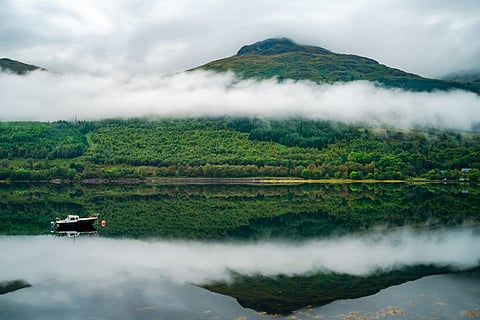View of Loch Long, Scotland.
Adobe Stock
Scottish Sea Farms promotes a new licensing and consenting process more committed to locals
Scottish Sea Farms is in discussion with Shetland Island Council, community councils, and other marine users about the proposals to launch a new licensing and consenting process that engages with residents and businesses.
Mowi is also involved in trialing the new process, which will apply to new and existing farms. It will submit the second planning notification, this time to Highland Council.
In more detail, Scottish Sea Farms has explained it will apply to consolidate in Shetland four existing farming consents into one expanded farm further offshore, Fish Holm. This allows it to optimize its legacy into a smaller number of farms sited in the best-growing locations.
According to Scottish Sea Farms, the regulatory expert Professor Russell Griggs' independent review in 2022 "found the current process of consenting and licensing for aquaculture too complex, with no joined-up approach and, as such, was not working as well as it could."
During this time, a Consenting Task Group, set up by the Scottish Aquaculture Council to deliver the recommendations, has been working with Shetland Islands Council and Highland Council – both of which have been involved in the Group – being the first to pilot the changes.
Scottish Sea Farms Head of Sustainability Anne Anderson said: "The pre-application process will see the two main consenting regimes, namely the local authority planners and Scottish Environment Protection Agency, work together to review the submission in consultation with key stakeholders, rather than each body consider the applications separately, as currently happens."
"This new, more coordinated approach is anticipated to take three to four months and pave the way for a swifter decision once the formal application has been submitted. We’re keen to talk local communities through our proposal, which is to consolidate four separate consents into one farm of 6,000 tonnes, which is a modest increase of 764 tonnes overall," she added.
Finally, she assured: "Should our application prove successful, this would see a potential 29 salmon pens and three feed barges reduced to a maximum of 12 pens supported by one barge. The Group will be looking to identify any scope for further improvement, informed by feedback from all key stakeholders, including communities, ahead of rolling out the new, coordinated approach to other local authorities."


